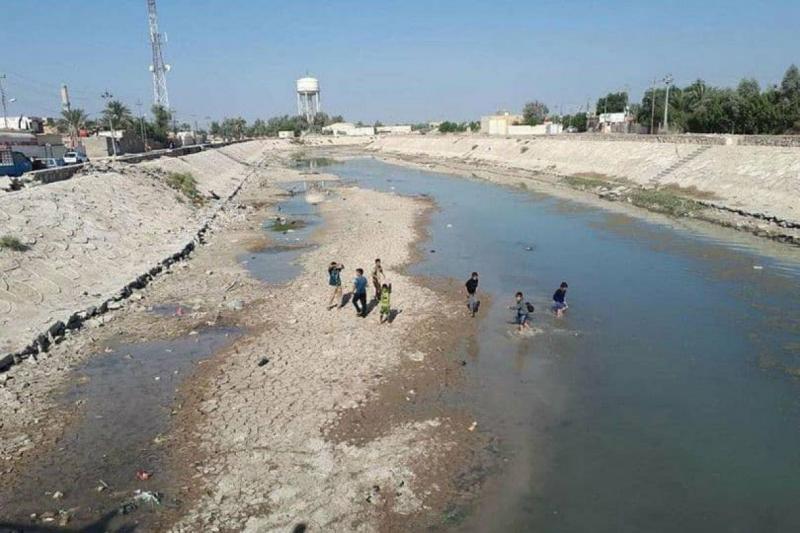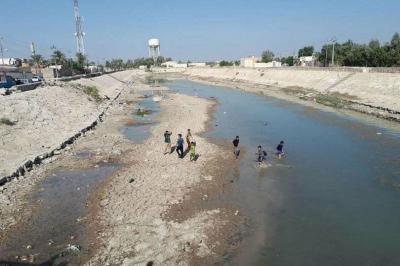The heavy rains that have fallen at the beginning of the winter and continue in various regions of Iraq have reignited hopes for a bountiful agricultural season and a summer free from thirst, following three seasons of severe drought that significantly reduced agricultural production, particularly in wheat and barley, by more than half. Additionally, vast areas of marshlands in the south have dried up, prompting many residents to migrate to urban centers in search of new job opportunities.
On World Water Day, the United Nations highlighted the water and climate challenges facing Iraq, warning that drought could lead to "creating community tensions and hindering development." With the signs of spring, the country has experienced a wave of floods and heavy rains over the past week, causing significant property damage and the death of two individuals in some provinces, especially in Duhok in the Kurdistan region. Calls have emerged in parliament for compensation for affected residents.
However, the Ministry of Water Resources stated that it has successfully managed the recent heavy rains and floods by directing them towards dams and lakes to increase water reserves, which had suffered severe declines in recent years. Minister of Water Resources Aoun Dhab Abdullah stated in press remarks that "the recent rains have provided full irrigation for all crops across the country, which is a good sign, indicating that we do not need to release large quantities from the reservoirs and dams." Abdullah confirmed that his ministry has started reducing water releases to conserve available reserves for the upcoming summer season.
Earlier, the ministry announced a rise in water reserves to about 10 percent within a very short period compared to past seasons, expecting an increase to around 15 billion cubic meters, with further rainfall expected in the coming days leading up to the snowmelt season in the northern mountainous areas. Most statements from the Ministry of Water Resources predict a summer free from thirst due to increased water reserves.
Spokesman for the Ministry of Agriculture Mohammad Al-Khazaei predicted that Iraq would witness the most abundant agricultural season in its history by cultivating over 6 million dunams. Al-Khazaei mentioned to "Asharq Al-Awsat" that "all indicators suggest we will reach this level of agriculture, and we will be able to achieve self-sufficiency in the strategic wheat crop."
He added that "combined factors have contributed to this level of farming, including abundant water resources, unlimited government support for the agricultural sector, and the introduction of modern mechanization in the cultivation of about 4 million new dunams in desert areas." One of the manifestations of agricultural support in Iraq, according to Al-Khazaei, is the government's purchase of one ton of wheat at a price of 850,000 Iraqi dinars (about 600 dollars), while the price for a ton of Australian wheat does not exceed 350 dollars.
On its part, the United Nations in Iraq highlighted water challenges and called for cooperation on World Water Day, which it themed "Water Year for Peace." The UN team in Iraq emphasized the urgent water issues facing the country and urged cooperation to address these challenges. It noted that "water scarcity, pollution, and inequitable access to water" could lead to social tensions and hinder socio-economic development.
In a detailed press statement, the team pointed out that "Iraq is located in a region that is already experiencing water stress and faces a range of challenges as a result. Water resources are shared with neighboring countries, making transboundary water management crucial to enhancing cooperation and maintaining peace." Iraq has complained for years about the "unjust" water policies pursued by Turkey and Iran, which have prevented it from receiving its water shares by building dams on the sources of the Tigris and Euphrates rivers and diverting rivers that flow into its territory.
The UN statement quoted Deputy Special Representative of the Secretary-General and UN Resident Coordinator for Humanitarian Affairs in Iraq, Ghulam Isaq Zai, stating that "the impact of climate change complicates the water situation in Iraq—where rising temperatures exacerbate water scarcity, reducing agricultural productivity, and threatening food security and public health." Zai added that "deterioration of water quality due to pollution and inadequate waste management practices poses a significant threat to human well-being and environmental safety; for this reason, the UN continues to work alongside the Iraqi government and its partners to mitigate the severity of this crisis."
The statement indicates that the UN team in Iraq is collaborating with the Iraqi government to address the growing crises of water scarcity and pollution.
The United Nations, according to the statement, has rehabilitated seven major water treatment plants in the south of the country, significantly improving access for local communities to safe drinking water. It continued that "in the Al-Hawzah marshes, the UN is working with local authorities to empower communities affected by the crisis and enhance access to clean water through solar-powered water purification systems, enabling about 960,000 individuals to obtain clean drinking water."
The UN statement concluded that the UN country team "continues to support the water sector in Iraq to address the water scarcity crisis and achieve impactful outcomes for children and their families by strengthening systems to reach consensus on frameworks for equitable and inclusive water management and resource management; eliminating water pollution and enhancing local markets to increase access to clean water and equitable sanitation facilities that can withstand climate change in local communities, schools, and health facilities."
It should be noted that the United Nations and the rest of the world celebrate World Water Day annually on March 22, which serves as "an opportunity to raise awareness about the importance of fresh water and advocate for the sustainable management of water resources," according to the UN organization.




